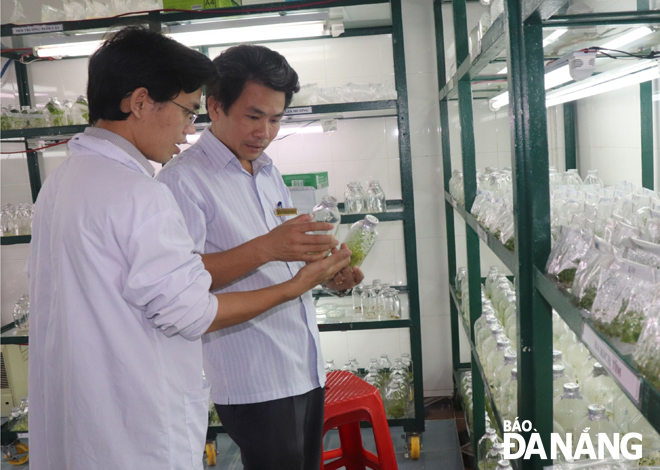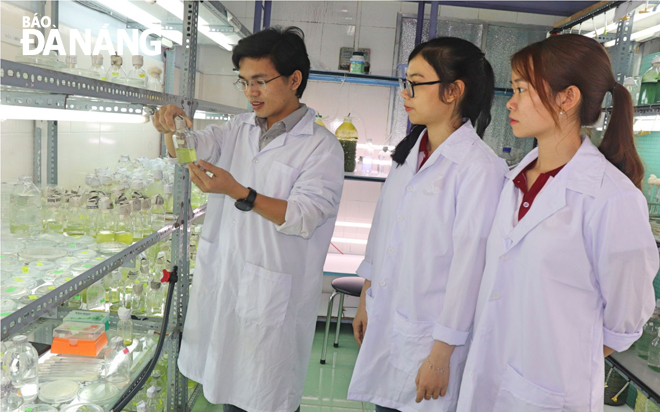Promoting human resource training for hi-tech agriculture
The Da Nang University of Education is now putting high priority on promoting human resource training for agricultural biotechnology and medicinal materials, in line with the city’s strategies for developing hi-tech organic agriculture.
 |
| Representatives from the university introducing such precious medicinal materials as Medicinal Indian Mulberry and Eurycoma longifolia Jack |
In addition to their study of theory subjects, the students of the Faculty of Biology and the Environment usually spend much time practicing at the school’s laboratory and at the experimental camp, hereby facilitating them to apply their learning to solve real-world problems.
Le Thi Ngoc Huyen, a fourth-year student of the Faculty said, modern machinery and equipment at the experimental camp, along with professional and technical support of highly experienced lecturers, have helped students like her gain necessary knowledge, and conduct many scientific research activities with high practicality.
In accordance with the University of Da Nang (UDN)’s target of developing into a research university by 2020, the Faculty has also coordinated with domestic scientists, managers, producers, and media agencies to establish a teaching research team – TRT for Environment and Biological Resource. The team specialises in carrying out a number of such major research orientations as pollution control with plant technology, ecological agriculture adapting to climate change, and agricultural and pharmaceutical biotechnology.
Dr Trinh Dang Mau, who studied for a Doctorate degree for more than 3 years in Thailand which boasts advanced microalgae farming technologies, eagerly remarked, the research into microalgae applications has recently recorded positive results.
 |
| Dr Trinh Dang Mau introducing microalgae farming technologies |
In addition, under the guidance of the teaching staff, many students have developed highly practical creative start-up projects under which products have been brought to the market.
Notable amongst them are the BIO-MS1 bio-product application into quail farming, and the Trichoderma fixed technology in used fororchid planting. Encouragingly, after their graduation, many students have entered the path of entrepreneurship and archive initial success.
According to Dr Vo Chau Tuan, the Dean of the Faculty, for many years, the training model has been built in a modern way, hereby helping to address such issues of concern relating to environment, energy, food security, climate change, biodiversity, and community health.
In particular, research has been conducted into producing microbiological preparations to serve the development of hi-tech agriculture, conducting technology transfer on edible and medicinal mushroom cultivation. Besides, precious herbs and the hydroponic models for growing vegetables and ornamental plants, along with trees with high economic value have been introduced to farmers in Da Nang, Quang Nam Province, and other localities in the central region and Central Highlands.
Da Nang is actively appealing for domestic and foreign investment in hi-tech agricultural applications and organic farming. Therefore, the research into agricultural biotechnology and medicinal materials is, in fact, a must-do.
More recently, the municipal administration has given a nod to a plan developed by University of Education for constructing its biotech and pharmaceutical experiment garden covering an area of 10ha in Hoa Vang district’s Hoa Phu Commune.
Once it is put into operation, this garden will serve for human resource training for hi-tech agriculture, as well as promote the development of research products of the school, solve transfer problems, and bring scientific research to fruition.